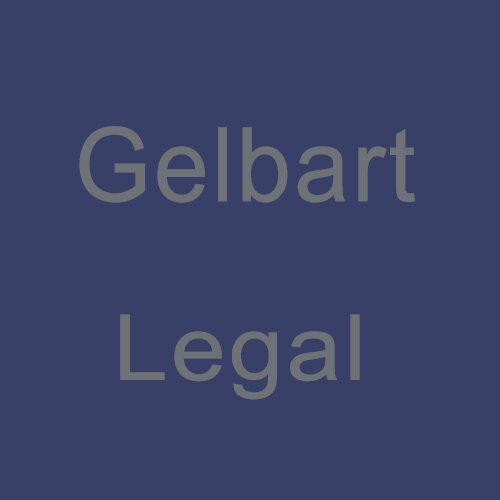Best Antitrust Lawyers in Germany
Share your needs with us, get contacted by law firms.
Free. Takes 2 min.
Or refine your search by selecting a city:
List of the best lawyers in Germany
About Antitrust Law in Germany
Antitrust law in Germany is primarily governed by the Act Against Restraints of Competition (GWB) and is enforced by the Federal Cartel Office (Bundeskartellamt). The aim of antitrust law is to promote fair competition and prevent practices that may harm market competition. German antitrust regulations are aligned with European Union competition laws, ensuring both national and cross-border compliance. Key provisions address anti-competitive agreements, abuse of dominant market positions, and merger control.
Why You May Need a Lawyer
Engaging a lawyer experienced in antitrust matters is crucial for businesses and individuals involved in:
- Investigations by the Federal Cartel Office or European Commission for alleged anti-competitive practices.
- Mergers and acquisitions that may require clearance under merger control rules.
- Drafting or reviewing contracts to ensure compliance with antitrust laws.
- Litigating or defending against antitrust-related claims in court.
- Participating in activities in highly regulated industries like telecommunications or pharmaceuticals.
- Seeking advice on collaborations or joint ventures that might raise competition concerns.
Local Laws Overview
The German antitrust framework includes key aspects such as:
- Prohibition of Cartels: Agreements between businesses that aim to fix prices, limit production or divide markets are strictly prohibited.
- Abuse of Dominance: Practices by a dominant company that exploit or harm market competition are illegal. This includes predatory pricing or imposing unfair conditions on trading partners.
- Merger Control: Companies must notify and gain approval for mergers subject to certain turnover thresholds to prevent market concentration that hinders competition.
- Leniency Programs: These allow businesses involved in cartel activities to reduce fines by cooperating with authorities and providing information about the cartel.
Frequently Asked Questions
What constitutes an anti-competitive agreement?
An agreement considered anti-competitive typically involves price-fixing, market sharing, or production limitations that restrict competition. These agreements can be formal or informal, written, or oral.
How is dominance in a market determined?
Dominance is assessed based on market share, economic strength, and the ability to act independently of competitors, customers, and ultimately, consumers.
What penalties can result from violating antitrust laws?
Penalties can include substantial fines, typically up to 10% of a company's annual worldwide turnover, damages claims from affected parties, and reputational damage.
Can small businesses be affected by antitrust laws?
Yes, small businesses must comply with antitrust laws. They are especially at risk in local markets where they may have significant influence.
What is a merger control notification?
This is a requirement for companies planning a merger or acquisition, involving a formal submission to authorities for approval to ensure the merger does not harm competition.
Are there exemptions to German antitrust law?
Certain cooperation agreements, particularly in research and development, may be exempt if they are considered beneficial for the economy and do not significantly affect competition.
How can one apply for leniency?
Applications for leniency should be directed to the Federal Cartel Office, ideally as early as possible. The process involves disclosing information about the anti-competitive conduct.
Does digital conduct fall under antitrust scrutiny?
Yes, conduct in digital markets, including algorithms and online platforms, is subject to antitrust laws, especially concerning data privacy and market manipulation.
What role does the European Commission play in German antitrust matters?
The European Commission intervenes in cases with cross-border impacts within the EU, applying EU competition laws, which Germany integrates into national practice.
How long do antitrust investigations typically take?
Investigations can vary significantly in duration, from months to several years, depending on the complexity of the case and the level of cooperation from involved parties.
Additional Resources
- Federal Cartel Office (Bundeskartellamt): Provides oversight and enforcement of antitrust laws in Germany.
- European Commission Directorate-General for Competition: Offers guidance on EU competition law applicable in Germany.
- German Bar Association (Deutscher Anwaltverein): Can assist in finding legal professionals specializing in antitrust law.
- Publications from the Max Planck Institute for Innovation and Competition: Offer in-depth research and analysis on competition law.
- Legal journals and publications specific to competition and antitrust law for scholarly insights and case studies.
Next Steps
If you seek legal assistance in antitrust matters, consider the following steps:
- Identify Your Needs: Determine whether you require proactive compliance advice, defense in an investigation, or assistance with merger approvals.
- Consult a Specialist: Reach out to a lawyer or law firm specializing in antitrust law. The German Bar Association can aid in locating qualified attorneys.
- Prepare Documentation: Gather all relevant business records, agreements, and correspondence related to your case for a comprehensive review by your lawyer.
- Engage with Authorities: If involved in an investigation, maintain cooperative and transparent communication with the Federal Cartel Office or other relevant bodies.
- Stay Informed: Keep abreast of developments in German and EU antitrust laws to ensure ongoing compliance and minimize risks.
Lawzana helps you find the best lawyers and law firms in Germany through a curated and pre-screened list of qualified legal professionals. Our platform offers rankings and detailed profiles of attorneys and law firms, allowing you to compare based on practice areas, including Antitrust, experience, and client feedback.
Each profile includes a description of the firm's areas of practice, client reviews, team members and partners, year of establishment, spoken languages, office locations, contact information, social media presence, and any published articles or resources. Most firms on our platform speak English and are experienced in both local and international legal matters.
Get a quote from top-rated law firms in Germany — quickly, securely, and without unnecessary hassle.
Disclaimer:
The information provided on this page is for general informational purposes only and does not constitute legal advice. While we strive to ensure the accuracy and relevance of the content, legal information may change over time, and interpretations of the law can vary. You should always consult with a qualified legal professional for advice specific to your situation.
We disclaim all liability for actions taken or not taken based on the content of this page. If you believe any information is incorrect or outdated, please contact us, and we will review and update it where appropriate.
Browse antitrust law firms by city in Germany
Refine your search by selecting a city.
















